WPI Luminaries
Congratulations to the 2019 Honorees

Joseph Adams, 1975
Designer and Builder of Iconic Projects Globally
Adams retired in 2016 as president of Energy and Industry for MWH Global, a 7,000-person engineering and construction company, after a 38-year career. He worked in more than 30 countries in North and South America, Europe, Asia, Africa, and Australia on projects including water, wastewater, mining, environmental cleanup, and hydropower. His last assignment was chairman of the MWH lead design consortium for the $5 billion expansion of the Panama Canal, known as the Third Set of Locks Project. He also served as president of Engineers Without Borders USA.
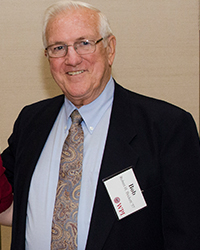
Robert H. Beckett, 1957, 2013 (Hon.)
Entrepreneur, Visionary, and Philanthropist
Beckett’s vision and creativity have influenced many industrial processes. His invention of an analog and digital gravimetic feeder for dry granular materials revolutionized the ability to more precisely meter and blend solid materials for product formulations. He was also instrumental in a method to certify the carbon content of gray iron. With his company, Robec, he successfully introduced, distributed, and applied the first microcomputers to industry. These achievements demonstrated his skill in solving process problems and growing businesses. He is also known for his support of educational scholarships.
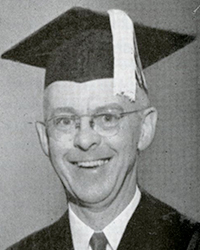
Harold Black, 1921, 1955 (Hon.)*
Inventor of the Negative Feedback Amplifier
As a young engineer at Bell Laboratories, Black invented the negative feedback amplifier in 1927 and greatly advanced telecommunications technology. More broadly, he invented the principle of negative feedback, among the most important ideas in electrical engineering during the 20th century and a concept that has found applications in fields as diverse as control engineering and psychology. During a nearly 40-year career at Bell Labs, he continued to innovate, earning 63 U.S. and 278 foreign patents. His discovery of negative feedback brought him an almost endless series of awards and honors.
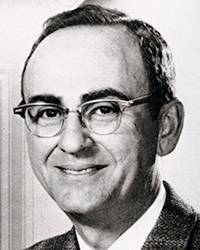
George Cowan, 1941, 2002 (Hon.)*
Pioneer in Nuclear Chemistry and Transdisciplinary Research
Cowan is widely known as a central figure in the founding of the Santa Fe Institute (SFI), which has brought together some of the world’s most influential scientific thinkers to explore the frontiers of complex systems science. During an illustrious nearly 40-year career at Los Alamos National Laboratory, he helped confirm the Soviet Union’s entry into the nuclear age and was a key participant in the Manhattan Project, which developed the first atomic bomb during World War II. Among his many honors, he received the Enrico Fermi Award and the Los Alamos National Laboratory Medal.
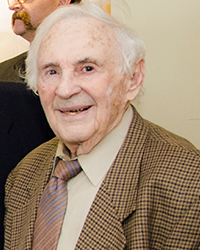
Howard Freeman, 1940, 1996 (Hon.)*
Inventor of the Waterfog Nozzle
Freeman is best known as the inventor of the waterfog nozzle. This critical development during World War II made it possible to fight oil fires on ships with a mist of seawater. His invention is credited with saving dozens of ships and thousands of lives. To fight the gasoline fires caused by kamikaze aircraft crashing into aircraft carriers, he invented a nozzle that created a fog of firefighting foam—a technology that later became standard equipment used to fight aircraft fires at airports, saving many more lives. Freeman eventually founded the Jamesbury Company in Worcester, where he developed many more nozzle and valve technology innovations and earned many patents.
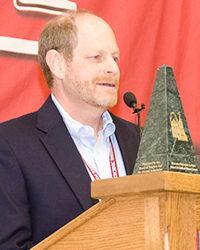
Scott Harris, 1982
Computer-Aided Design Visionary and Thought Leader
As co-founder of both SolidWorks Corporation and Onshape Inc., Harris has helped provide millions of engineers and designers with the world’s most intuitive and innovative design tools. Through thoughtful consideration of engineering workflow and careful crafting of the user experience, Harris’s products have become the mainstay for thousands of schools and companies worldwide with unsurpassed ability for engineers to collaborate, articulate, test, and manufacture complex mechanical designs. He is deeply committed to advancing the state-of-the-art for CAD, teaching engineering and entrepreneurship, mentoring technology startups, solving problems of consequence, and advocating for social action.
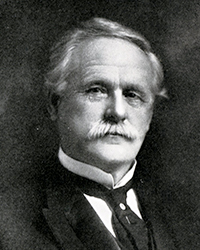
Milton Higgins*
First Superintendent of Washburn Shops
Higgins was among the Worcester industrialists involved in the founding and shaping of the new school that became WPI. As first superintendent of the Washburn Shops, he hired experienced tradesmen to teach students the art of manufacturing, ultimately providing a skilled and knowledgeable workforce to Worcester’s emerging industrial center. With his lifelong friend and business associate, WPI Professor George Alden, he established and led Norton Company and designed and built the first hydraulic elevator. A civic and business leader, he is considered the father of the trade school program and was founder of the Worcester Boys Trade School.
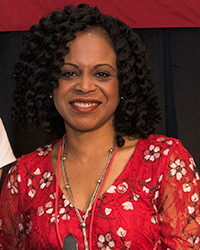
Rev. Dr. Debora Jackson, 1989, 2000
Leader, Educator, Author
Jackson paves the way for women and underrepresented people of color in everything she does. She was the first or among the first African American graduate students in her graduate programs, and among few in industry during her career in engineering. She is the first African American woman trustee of WPI. And she served as the first director of lifelong learning at Yale Divinity School, a position she came to after years of demonstrated leadership in the American Baptist Churches USA. She is a sought-after keynote speaker, consultant, preacher, and author.
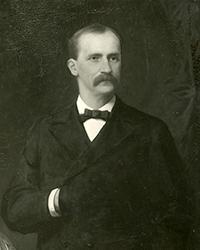
Charles O. Thompson, Founder*
First Principal of the Institute; Visionary in Scientific Education
Thompson was a 31-year-old high school administrator and civil engineer when the Board of Trustees elected him to lead the Worcester County Free Institute of Industrial Science as its first principal (or president) and a professor of chemistry. He studied European colleges and universities extensively in the months leading up to the Institute’s opening, in preparation for realizing the mission of this pathbreaking new school. He led the Institute from 1868 to 1882, emerging as an educational visionary for his work designing a curriculum that coupled practice in the Washburn Shops with classroom instruction.
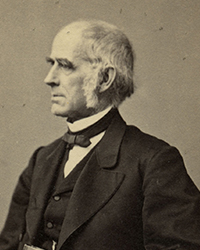
Emory Washburn, Founder*
Twenty-third Governor of Massachusetts and Civic Leader
As governor of Massachusetts, Emory Washburn promoted the establishment of the Institute at the state level, helped secure its charter, and petitioned for $50,000 in support of its founding. Like his fellow founders, he was concerned with educating a forward-thinking workforce for Worcester County and recognized the Institute’s capacity to advance industry, individuals, and the community for generations. After one term as governor, he returned to the legal profession, and was known for establishing one of the largest and most successful law practices in Worcester County.
2017 Inductees
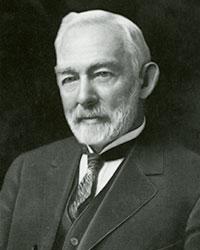
George I. Alden, 1926 (Hon.)*
Alden, a pioneer faculty member at WPI, achieved national recognition in the 1880s and 1890s for his skillful and compelling adoption of an engineering education that combined theory and practice. He, along with fellow faculty member, Milton Higgins, established the Norton Emery Wheel Company in their spare time. By 1896, Alden had invented a dynamometer for measuring the power of all kinds of machines, he and Higgins invented the first hydraulic elevators, and Alden had established and directed the second hydraulic laboratory in the United States. Because of his belief in education, Alden initiated one of the first programs for helping employees to acquire further education at the Norton Company. He also established the George I. Alden Trust, which today remains one of the most generous philanthropic organizations in Worcester, continuing to support the education of generations of leaders at WPI and other institutions in the city.
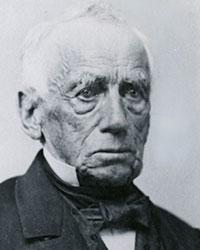
John Boynton, Founder*
Boynton, a prosperous tinware manufacturer from Templeton, Mass., had the dream to start WPI. He recognized the expanding industrial revolution in New England and knew educated people would be needed to assume leadership positions in manufacturing and commerce. Boynton pledged his life’s savings of $100,000 to endow a new school in Worcester to educate those leaders. With the help of a few others, Boynton’s vision was realized when the Worcester County Free Institute of Industrial Science opened in May 1865.
Carlson is a pioneer in the development and use of innovation best practices and an advocate for innovation, education, and economic development. He is widely known for the development of high-definition TV and SIRI for the iPhone4, but he is also a trusted and sought-after adviser, sharing best practices with government leaders and organizations around the world. Carlson is a member of the National Academy of Engineering and an adviser to the U.S. National Science Foundation. He began two teams that received Emmy Awards for their improvements to television quality. Carlson has also authored two books on innovation.
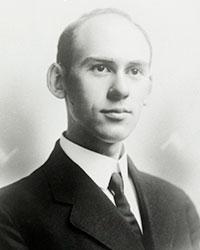
Robert H. Goddard, 1908*
Goddard is known throughout the world as the father of modern rocketry. As a student at WPI, he launched a rocket through the roof of a campus building. His research continued and in 1912, he suggested to the Smithsonian that it could be practical for a rocket to reach altitudes as high as the moon. Goddard launched his first liquid-fueled rocket on March 16, 1926 in Auburn, Mass. In 1914, he received two U.S. patents: one for a rocket using liquid fuel, the other for a multi-stage rocket.
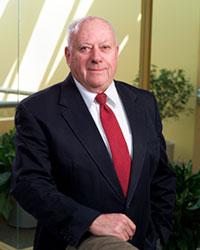
William R. Grogan, 1946, 1949 MS, 1990 (Hon.)*
Grogan led conversations around revolutionizing education at WPI. As the first dean of undergraduate studies, he led the WPI Plan’s implementation, a process that took 15 years. Grogan’s contributions to technological education brought him numerous honors. The American Society of Engineering Education presented him with three of its most prestigious honors. The WPI community has also recognized Grogan; notably, the WPI Alumni Association presented him with its Goat’s Head Award for Lifetime Commitment to WPI in 2012.
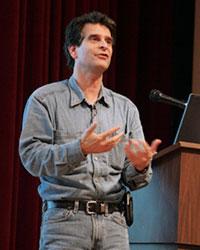
Dean Kamen, 1973, 1992 (Hon.)
Kamen is an inventor of the AutoSyringe, Segway™, iBOT™ mobility system, and the HomeChoice portable dialysis system. He holds more than 440 patents, many of them for innovative medical devices that have changed healthcare worldwide. In 2000, Kamen was presented with the National Medal of Technology. He was elected a member of the National Academy of Engineering in 1997, awarded the Lemelson-MIT Prize in 2002, and was inducted into the National Inventors Hall of Fame in May 2005. Kamen is a Fellow of the American Institute for Medical & Biological Engineering, as well as many other national and international engineering organizations. He is also the founder of FIRST® (For Inspiration and Recognition of Science and Technology), an organization dedicated to motivating the next generation to understand, use, and enjoy science and technology. Founded in 1989, FIRST serves more than 1,000,000 young people, ages 6 – 18, in more than 86 countries around the globe.
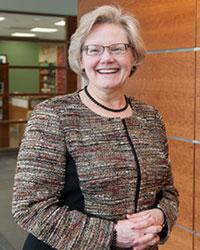
Judith Nitsch P.E., 1975, 2015 (Hon.)
Nitsch is the founding principal of Nitsch Engineering, a 100+ person civil, structural, and transportation engineering; land surveying; planning; green infrastructure consulting; and GIS services firm with four offices in Massachusetts and Washington DC. A Registered Professional Engineer in 27 states during her career, Nitsch is serving her second term as a member of the U.S. Department of State Overseas Building Operations Industry Advisory Group. She was the 2014 national president of Commercial Real Estate Women (CREW) Network. In 1989, she was elected the first alumna member to WPI’s Board of Trustees where she served for 23 years, including 16 years as Chair of the Facilities and Campus Infrastructure Committee. Nitsch is known as a mentor and advisor to many students and alumni, and as a steadfast supporter of her alma mater. She has been recognized for her commitment to the WPI community with nearly every commendation. Nitsch Engineering has received many awards over the years including being recognized by Inc. Magazine as an Inc. 500 fastest growing company in 1996, to being the #1 Top Place to Work in the mid-size firm category by The Boston Globe in 2016.
Norton, co-creator of The Balanced Scorecard, is the world’s leading authority on strategic performance management. The Balanced Scorecard is a strategic planning and management system that is used extensively in business, government, and nonprofit organizations worldwide to align business activities to the vision and strategy of the organization, improve communications, and monitor performance. Norton is the founder and director of several professional services firms, including Palladium Group. He was voted as one of the world’s 12 most influential thinkers by Sun Top Media’s “Thinkers 50” in 2008. Norton has also authored books that have been translated into 23 languages.
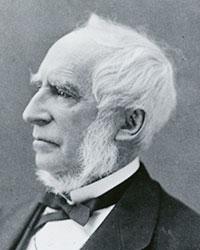
Stephen Salisbury II, Founder*
Salisbury was appointed as the first president of WPI’s board of trustees. He was charged with bringing to fruition the vision of John Boynton and Ichabod Washburn. Salisbury spent the last 16 years of his life dedicated to WPI. He supported WPI generously—his gifts totaling $236,000—although he often quietly made up the budget deficits in the school’s formative years.
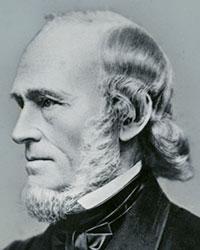
Ichabod Washburn, Founder*
Washburn was one of Worcester’s most successful businessmen. By 1865, he owned the world’s largest wire factory. Like John Boynton, Washburn also had a vision for a new type of school, one that would replace the age-old apprentice system with a formal educational program for tradesmen. He offered to build a model manufacturing facility on campus to provide practical experience that would augment classroom instruction. The trustees accepted Washburn’s offer, but only after delicate negotiations modified his original objective from training trade apprentices to providing hands-on shop experience for future engineers. This combination of classroom, laboratory, and shop experience became the hallmark of a WPI education and continues to thrive today.
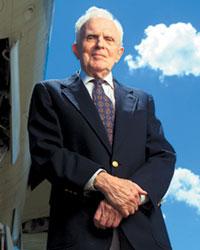
Richard T. Whitcomb, 1943, 1956 (Hon.)*
Whitcomb invented three revolutionary aerodynamic concepts that forever changed airplane design by improving efficiencies. He developed the Area Rule, which made supersonic flight practical. Whitcomb also invented the Supercritical Wing, which revolutionized jet liner design decreasing drag and increasing fuel efficiency. His final innovation was winglets, airfoils that extend at an angle from the ends of wings. By reducing drag and increasing lift, they produce greater fuel efficiency. The famed aerodynamicist retired from NASA Langley Research Center in Hampton, Va., in 1980, but his contributions remain some of the research center’s greatest accomplishments. He earned many honors in his life: the Collier Trophy in 1954, the National Medal of Science (personally conferred by President Richard Nixon) in 1973, the U.S. Air Force Exceptional Service medal in 1955, the first NACA Distinguished Service Medal in 1956, the NASA Exceptional Scientific Achievement Medal in 1959 and the National Aeronautics Association’s Wright Brothers Memorial Trophy in 1974, among others. In 2012 the National Aviation Hall of Fame named him an honoree.
*Deceased